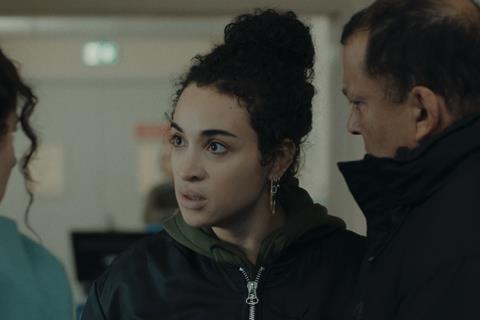
The surprise decision by French president Emmanuel Macron to call elections for France’s lower house of parliament has caused huge alarm within the French film and TV industry.
The snap election is one of the most serious consequences of the European Parliamentary elections. If Marine Le Pen’s far-right National Rally party repeats its European performance on home turf, the result could be “hugely dangerous” for the entire European film and TV industry, said one executive.
There are fears the far-right party could dismantle, or at least “de-prioritise” France’s uniquely supportive and generous funding ecosystem for filmmakers.
“I am still in shock,” one French executive told Screen. “Everything is very uncertain at the moment.”
Le Pen’s National Rally party is currently forecast to win – but fall short of an absolute majority – when the first round of the election takes place on June 30, with the run-off on July 7.
“France flies the flag for culture for the whole of Europe in the global context. If there is a far-right government in France, it is serious for everyone,” said the executive.
Macron – who will remain president and is not up for election – has been a big supporter of the EU’s AVMS directive which provides the framework for each EU country to regulate its audiovisual media sectors, and France’s powerful national film organisation, the CNC. For years, the French industry has enjoyed the most generous state support of any European country in the form of state funding, levies, investment obligations and tax incentives.
If the far-right wins, audiovisual policy could change significantly. National Rally is in favour of privatising publicly owned broadcasting stations, including France Télévisions and Radio France. Thanks to France’s investment obligations, France Télévisions is a major champion of film. It invests at least €60m per year in European and original French-language films, co-producing around 60 features a year.
Creeping impact
Already, France has seen smear campaigns by the far-right that have ruined box-office chances for a handful of films. They include Mehdi Fikri’s family drama After The Fire, about a woman on a quest for justice when her brother dies in police custody.
If the far-right comes to power, it might also seek to influence CNC policies. The CNC is an autonomous body but is overseen by France’s culture ministry. One executive said there is ‘mood music’ emanating from some political quarters in France – like in Italy – about too many films being made that do not find audiences in cinemas.
“This is something we are strongly fighting. For us, if some films do not find an audience it is a bit of R&D,” said the executive. They cited the example of Justine Triet whose first two films had small audiences, but who achieved global success – and an Oscar and Bafta – for her third, Anatomy Of A Fall.
“Financing first or second films that do not find their audience should not be seen as a loss of money,” said the executive, who points out French films have a 40% share of the local box office. “It’s part of the whole system. We are the strongest market in the EU. We are the first market in the EU for American blockbusters as well. We are seen by the rest of the world as the place for co-production, the place for authors, the place where filmmakers in danger can come to residencies and write their new scripts. This is something we will fight for, whatever happens.”
Another European executive feared an elected far-right government in France could “de-prioritise” culture. “In the French context, where culture is so important, that is unbelievable.”
Additional reporting by Rebecca Leffler






![The Brightest SunScreen[Courtesy HKIFF]](https://d1nslcd7m2225b.cloudfront.net/Pictures/274x183/3/5/0/1448350_thebrightestsunscreencourtesyhkiff_312678.jpg)


















No comments yet